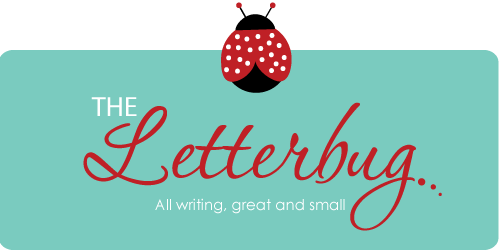
Is it just me or do high school English classes slide further and further away with every year? Thank goodness we have "Grammar on the Porch". Good old Grammar loves to visit The Letterbug from time to time for a nice cup of tea and a natter about the English language. She knows you know - really she does. But just in case...
Image kindly supplied by Toni Grote - visit http://www.artisttonigrote.blogspot.com/ to see more of her beautiful artwork.
Good afternoon dears. Grammar is so pleased to back on the porch with you today! There is always so much for us to chat about when I visit, isn't it lovely? And chatting (i.e. the spoken word) is exactly the topic that Grammar wants to cover today. Then when we're done, there's jam roly-poly and more Earl Grey for everyone!
Although this may not technically be a Grammar issue, I have noticed a few words being used in all the wrong places during conversation recently. And the mis-use of these words is becoming more and more common.
Don't fall into the trap! Let Grammar set the record straight for you today.
Why does it matter?
Well, it seems that our verbal language swiftly flows into informal written communications (emails, social media etc.)
So?
So, Grammar wants you to avoid looking like anything less than the bright little sparks that you all are...
Irregardless vs Regardless/Irrespective
This word alone was Grammar's motivation for bringing up today's topic.
Ladies and Gents, 'irregardless' isn't really a word!
The word many folks are searching for could be either 'regardless' or 'irrespective'.
Regardless adj. - heedless. --adv. - in spite of everything.
Irrespective of prep. - without taking account of.
If you're an old eavesdropper like me, you'll be surprised how often you hear people say 'irregardless' in conversation. You'll see!
Typical vs Atypical
Grammar recently attended a workshop that explored the typical behaviour of Poker players around the world. (Useful information to have when you want to conker the local Elderly Citizens Bridge Club!)
Sadly, the presenter continually used the word 'atypical' in all the places where 'typical' ought to have been used. Grammar didn't learn half of what she could have learned, had she not been distracted by the whole typical/atypical matter.
Ladies and Gents, 'atypical' means the opposite to 'typical'!
Typical adj. true to type, characteristic.
Typical adj. true to type, characteristic.
Atypical adj. not typical.
Let's make it our mission to eradicate these two linguistic blunders from conversations everywhere! And while we're at it shall we lobby for an additional public holiday to celebrate the indescribable deliciousness of jam roly-poly?
I vote YES - seconds anyone?






No comments:
Post a Comment